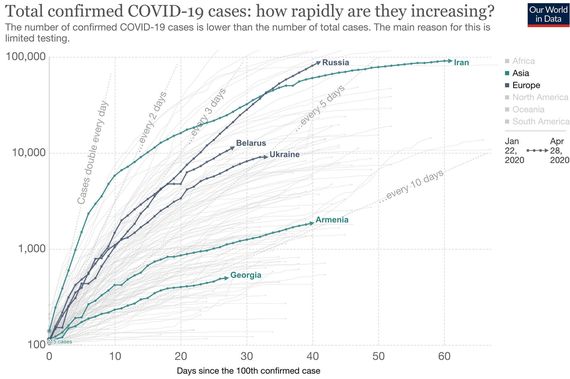11:00 a.m
Parliament held a special session to discuss three draft bills proposed by the government, aimed at mitigating the consequences of the spread of COVID-19. Atom Janjughazyan, the Minister of Economy, presented the government’s first proposal to make changes in Armenia’s 2020 state budget. The Minister explained that, since Armenia has an open economy, all the external shocks created by the pandemic, such as price fluctuations for goods in international markets, had their influence on Armenia’s economy. The International Monetary Fund (IMF) is estimating a 3% decline in the global economy. Janjughazyan noted that, similar to countries around the world, Armenia is likely to be affected by the decline in world metal and oil prices. Considering Armenia’s strategic relations with Russia, Armenia is also likely to be affected by the drop in the value of the Russian ruble.
These external shocks are transferred to Armenia through weak external demand, decline in the tourism sector, and a reduction in remittances. Speaking about internal restrictions imposed by the State of Emergency (SOE), Janjughazyan noted that restrictions on movement and economic activity have also had their influence on Armenia’s economy. Considering the presence of internal and external shocks, Armenia is expected to have a 2% economic decline. Janjughazyan reminded that Armenia’s 2020 budget was set under an assumption of 4.9% economic growth.
The draft bill proposes to allocate an additional 150 billion AMD, 25 billion of which will be used to mitigate the economic consequences of the pandemic, 25 billion for the social consequences, 80 billion for the financing of long-term economic development programs. The remaining 20 billion AMD will be reserve funds, to be reallocated if and when necessary. Janjughazyan noted that, because of the unprecedented crisis, the goal of government actions so far has been to develop a targeted and timely response to the spread of the pandemic. This bill will be further discussed and voted on tomorrow at 11 a.m.
During the first reading, Parliament passed (82 in favor, 12 against, and 14 abstentions) the government’s second proposal to make changes and amendments to the Law on the Legal Regime of the State of Emergency (SOE) and the Law on Normative Legal Acts. Rafik Grigoryan, the First Deputy Minister of Justice, presented the proposed changes. Grigoryan explained that the reason for the proposed changes is that Armenia’s legal system was not prepared for a challenge like the COVID-19 pandemic. The spread of the virus has created the need to implement certain measures, which are not considered by the existing legislation. According to the proposed amendments, it is recommended to clarify the role of the Special Commission, the status of the Warden, and the nature of acts adopted by the Commission. The proposed changes stipulate that, if a decision on declaring a SOE is adopted, then the Prime Minister or Deputy PM will act as the Warden of the Special Commission and carry out the management of the implementation of the necessary measures. The Warden is allowed to involve other state bodies in the process.
While exercising its power, the Special Commission is allowed to adopt acts, similar to the acts adopted by the PM or Deputy PM. Grigoryan said that, based on the recommendation received from members of Parliament, the Special Commission will be formed based on the decision of the government (the initial version said that the Warden creates the Special Commission). Due to the need for prompt responses during the SOE, some measures, such as restrictions imposed on educational processes, were clarified. The proposed changes also mention that, during the SOE, restrictions on the exercise of personal rights can be imposed in order to limit the spread of the virus (which stems from Articles 76 and 27 of the Constitution, as well as the Articles 5 and 14 of the European Convention on Human Rights and Fundamental Freedoms). The exercise of personal rights can be restricted based on oral or written orders by the bodies involved in the implementation of measures during the SOE. The Warden and the Special Commission will continue their operations in accordance with the new regulations.
During the first reading, Parliament voted in favor (92 in favor and 18 abstentions) of the government’s third proposal to make changes and amendments to the Code on Labor and the Code on Administrative Offences. Arman Udumyan, the Deputy Minister of Labor and Social Affairs, presented the proposed changes. Udumyan clarified that the proposed amendments to the Labor Code will facilitate better employee-employer legal relations during the SOE. He went on to say that the changes clarify the concept of remote work, and if it is possible to organize the work of the employee, they should be fully compensated. Under a force majeure, an employer may not pay an employee during the forced leave. Clarifications were made as to what constitutes a force majeure in the areas specified by the Special Commission. However, the changes also allow an employer to pay employees during the forced leave. The employer is also required to allow employees to use their unused vacation days, based on the request of an employee. With the proposed changes, the employer is not allowed to apply disciplinary sanctions against employees who are either unable to go to work or arrive late as a result of the emergency situation. This particularly refers to parents who are forced to stay at home and take care of children because of the restrictions imposed on schools.





